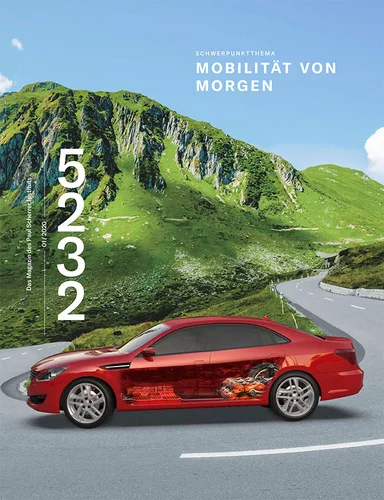Christian Bauer is a scientist at PSI's Laboratory for Energy Systems Analysis and specialises in life cycle and sustainability analyses.
Mr. Bauer, if you were currently in the market for a new car, what kind of motor would it have?
Bauer: I hope the diesel I'm driving now will hold up for another three to five years. At that point there should be a suitable electric model for me. Our study clearly shows that electric cars are the most sustainable option in the long term, especially if they are powered by green electricity. A lot of people are still hesitating, fearing that the range could prove to be too small in everyday life, the charging infrastructure would be inadequate, or the price of such cars would be too high. But the bottom line is that electric would already be the right choice for many today. If you mainly drive short distances and can reliably charge the battery in one place, you should do the math yourself. If we assume that battery technology and charging time will continue to improve, the range will be insufficient for only two to five percent of car drivers. And there should be enough quick charging stations in the foreseeable future to cover long distances.
But electric cars are expensive.
Yes, when you buy the car, you have to spend considerably more today. However, you save fuel costs on an ongoing basis. For taxis, the bottom line is that it is certainly worth it today. And I assume that this cost comparison will generally change in favour of electric cars in the near future: Cars are sure to become more affordable quickly, while petrol and diesel prices will continue to rise.
Is the fuel cell also a good option?
Only if the distances are long and a large cargo capacity is required. This means mainly for heavy loads and long-distance buses. In my opinion, the fuel cell will not play a major role in the long term for passenger cars.
To what extent does the Swiss government promote alternatives for powering cars? How ambitious are the goals?
There is an "Electromobility Roadmap 2022" from the federal offices of energy and roads. The goal is that in three years, 15 percent of new registrations for passenger cars should be for electric vehicles. In the first half of 2019, pure electric cars accounted for almost four percent of new registrations – so Switzerland is still quite a way from the goal.
Will all the Swiss drive electric cars in 20 years anyway?
A lot of them, at least. Switzerland can't uncouple itself from the rest of Europe. If the major car manufacturers now switch consistently to battery-powered electric cars to meet the increasingly strict regulations, it may become difficult for us to stick to gasoline and diesel. It is quite possible that in 20 or 30 years we will get by without them.


